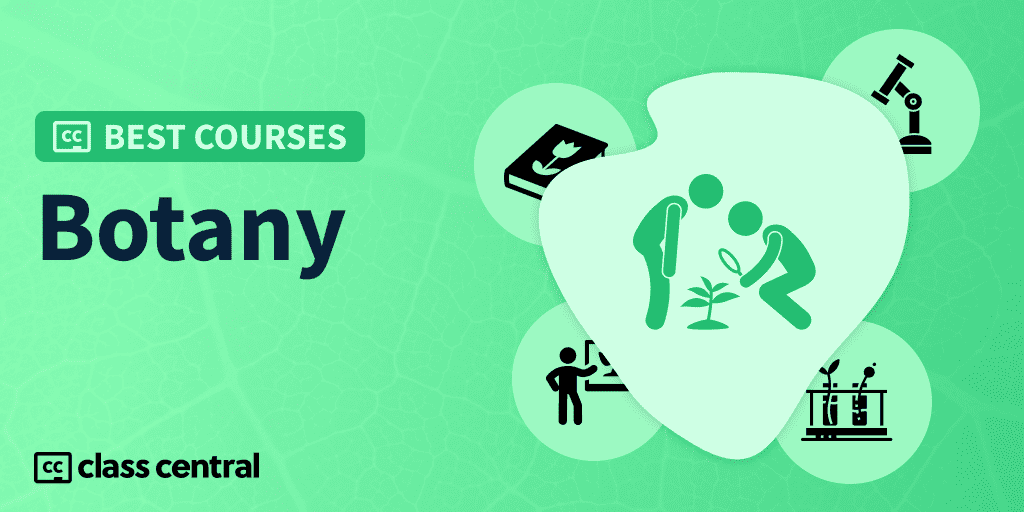
The magical world of plants drew me in when I discovered how they harness light to transform carbon dioxide, water, and soil into thriving life forms. My intrigue with the vast diversity of flora and fauna on Earth is never-ending.
Botany encompasses more than just studying trees; it includes flowers, crops, grasses, conifers, and more. Interestingly, some plants do not rely on photosynthesis to thrive. This Best Courses Guide (BCG) covers various topics in botany, from general plant studies and photosynthesis to environmental interactions, beneficial for those pursuing India’s NEET exam. For more botanical insights, check out the r/botany subreddit.
We’ve meticulously curated ratings and feedback from Class Central and leading course providers, presenting you with the top-rated botany courses. If short on time, Professor Dave Explains offers a brisk course worth considering.

Explore these options for more course details:
Our Top Course Recommendations
BCG Highlights
- Three courses are available for free, or free-to-audit, while two are paid offerings.
- Two courses provide an option for a verified certificate.
- YouTube emerges as the leading provider with two notable courses.

Professor Catherine Kleier brings a vibrant passion for plants in her courses. In her class, Plant Science: An Introduction to Botany, you will delve into:
- Root, stem, and leaf structures
- Plant evolutionary history
- The magic of photosynthesis
- Reproduction and dispersal of seeds
- Pollination mechanics
- Habitats like grasslands, deserts, and tropics
- ‘Bad’ plants might not be so bad after all
Sample more offerings from this engaging instructor:
“Especially appreciated the clear breakdown of photosynthesis chemistry” – Sue22, a learner on The Great Courses Plus.
| Provider | The Great Courses Plus |
| Instructor | Catherine Kleier |
| Time Commitment | 12 hours |
| Rating | 4.5 (151 ratings) |
| Cost | Paid |
| Certificate | Not available |
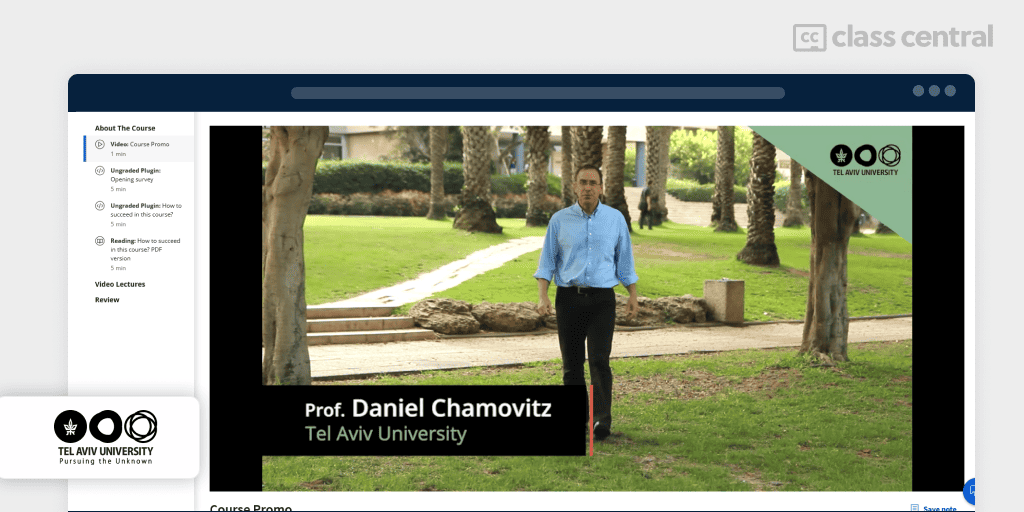
Ever thought of plants as merely passive, just growing quietly? In Understanding Plants – Part I: What a Plant Knows, you’ll uncover how plants are acutely aware and responsive to their environment, addressing questions such as:
- How do plants react to light without eyes?
- Are plant cells responsive to volatile chemicals?
- Do plants communicate with one another?
- How does a Venus flytrap detect when to close?
- Do plants recognize musical vibrations or feel pain?
- What’s their sense of gravity like?
- Can they store and recall sensory data?
- End the journey with a tour of a plant growth lab
The complementary course, Understanding Plants – Part II: Fundamentals of Plant Biology, dives deeper into plant biology, from cellular architecture to photosynthesis, touching on genetic engineering. Daniel Chamovitz’s enthusiasm makes these courses truly enjoyable.
“Top-notch course! Definitely one of my favorites…” – Kristina Šekrst.
| Provider | Coursera |
| Institution | Tel Aviv University |
| Instructor | Daniel Chamovitz and Aviva Katz |
| Time Commitment | 11 hours |
| Enrollment | 113K students |
| Rating | 4.8 (12 ratings) |
| Cost | Free to audit |
| Certificate | Paid option |
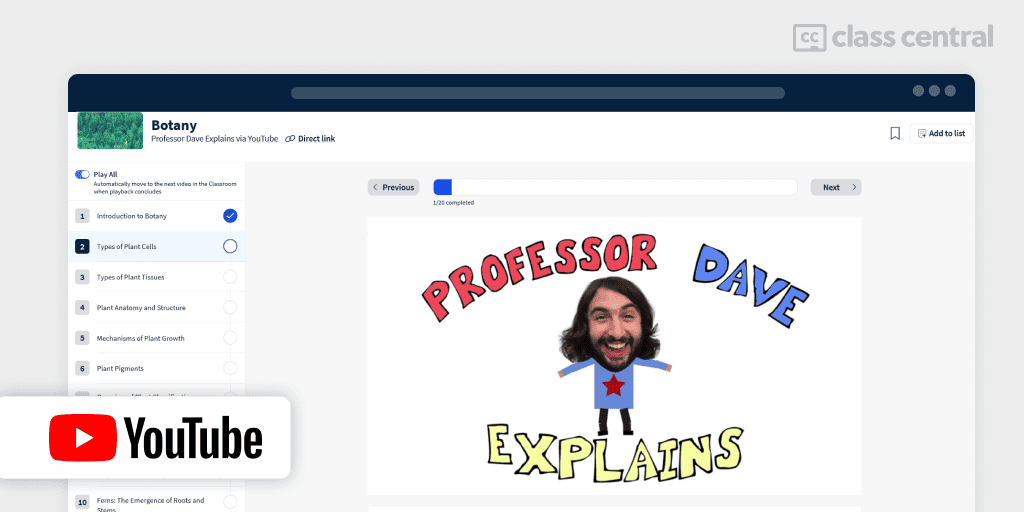
Professor Dave Farina continues his captivating educational series on botany, joining his lineup featuring neuroscience, genetics, and more. This course covers:
- Plant cellular structures and tissues
- Growth processes and anatomy
- Classification of plants
- Exploration of vascular and nonvascular plants
- Gymnosperms & angiosperms
- Environmental responses
- Photosynthesis
- Dendrochronology insights
“Exceptional content! Easy to grasp and apply.” – Breyner Ariza Pineda, learner on YouTube.
| Provider | YouTube |
| Instructor | Dave Farina |
| Time Commitment | 2-3 hours |
| Number of Views | 300K views |
| Cost | Free |
| Certificate | Not available |
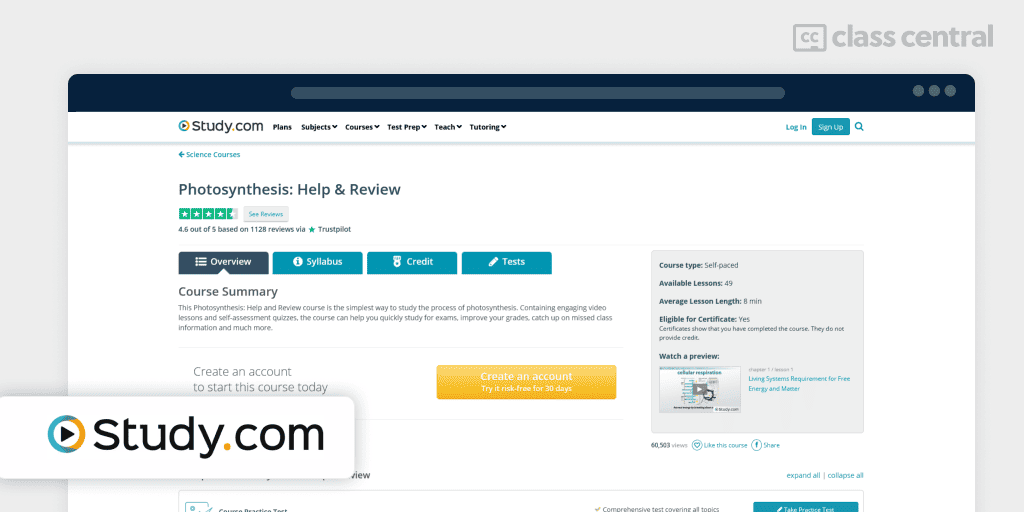
Elizabeth Friedl’s Photosynthesis: Help & Review course provides an in-depth look at how plants utilize sun energy to synthesize essential elements. Topics include:
- Fundamentals of photosynthesis
- Plant anatomical study
- Biochemical processes in photosynthesis
- Photosynthesis chemistry
- Additional impacting factors
Discover plant evolution, cyanobacteria, and the carbon-water cycles in this insightful exploration.
| Provider | Study.com |
| Instructor | Elizabeth Friedl |
| Time Commitment | 7 hours |
| Cost | Paid |
| Certificate | Paid option |
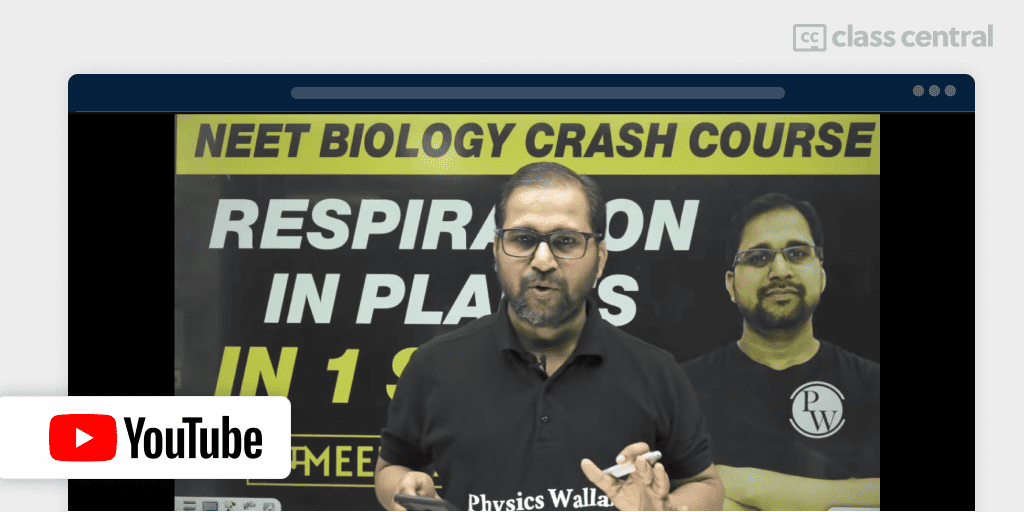
Preparing for medical studies in India? Pass the NEET exam with Competition Wallah’s Hindi video series. Over 30 days of botany knowledge, covering:
- Plant respiration and photosynthesis
- Comprehensive plant kingdom study
- Growth, form, and structure exploration
- Cell biology and reproduction fundamentals
- Inheritance, ecosystem interactions
- Microbial study, food production techniques
- Environmental conservation matters
“Such an inspiring teacher! Makes botany engaging for hours.” – anusmritabora7662, enthusiastic YouTube learner.
| Provider | YouTube |
| Instructor | Competition Wallah |
| Language | Hindi |
| Time Commitment | 89 hours |
| Number of Views | 4.1M views |
| Cost | Free |
| Certificate | Not available |
Why Trust Our Recommendations?
Class Central, akin to a Tripadvisor for online learning, has guided over 80 million learners in discovering their next course. For over ten years, we’ve scoured the digital education landscape to amass a comprehensive catalog of 250,000 online courses with equal numbers of reviews from our users. We’re avid online learners ourselves; collectively, our team has completed more than 400 online courses, including degree programs.
Personally, I’ve completed over 200 courses across various disciplines, including botany.
Our Selection and Vetting Process
The quest to identify “the best” courses can be overwhelming, even for seasoned course enthusiasts like us. Here’s the method we employed:
Initially, we perused Class Central’s database and the broader web, selecting diverse free and paid courses, many with certification options. You don’t have to enroll in a university to delve into botany.
We gathered syllabus details and user feedback, collated ratings, and utilized our rich Class Central repository, featuring thousands of course ratings and user reviews, alongside available provider ratings. I watched several course videos, sampling those I hadn’t previously explored.
We then defined a scope targeting recommendations from assorted botany subfields, ensuring a well-rounded selection.
Ultimately, a mix of quantitative data analysis and subjective expertise informed our top picks, making these a trustworthy avenue for botany enthusiasts to learn and grow.




